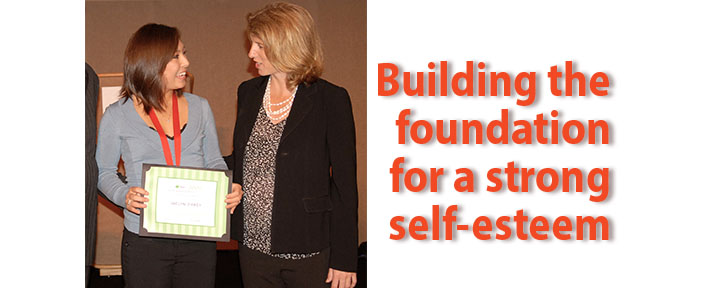
Being a teen today has many complexities that the rest of us old folks never had to maneuver. We didn’t have 18 months of social isolation where most of our interpersonal interactions were spent perusing social media posts. We didn’t have bullies who hid behind digital screens while they blasted hateful messages and photos to us for everyone to see. Most of the teens I work with today suffer from depression and devastating self-esteem issues.
Teens so desperately need to receive affirmations to feel that they’re normal. Whether it’s knowing that their favorite sweatshirt looks good on them or that they’re applying to the best colleges. I find it concerning when teens value their peers’ advice over their parents’ and even mine (I’m their college advisor!). One 16-year-old boy told me that it wasn’t until his peers gave him thumbs up, that he finally felt confident enough to share his idea publicly. While I know that teens trust their peers – especially the super popular and attractive teens, I worry that so much rides on what their peers (and others) think of them.
So how do we help our teens develop healthy perspectives and positive personal self-esteem? Projects! Brainstorming about an issue or problem, and then solving some portion of that problem by doing a project, helps teens find their voices and begin to establish who they are in this ever-changing world. The process of doing a project requires research, critical thinking, problem solving, and initiative. By delving into these 4 skills, these teens learn how to navigate real-world problems. They see how their personal impact positively affects others – and that’s REAL. It’s not a fickle peer’s comment or fleeting friendship; it’s knowing that they are doing something that needs to be done – and they’re doing it themselves.
I remember when Rory Kennedy (yes, that Kennedy) gave my youngest daughter Jaclyn an additional $10,000 scholarship (total $20,000) at the National Toyota Community Scholars event in Kentucky, Jaclyn told me that she was so proud to be recognized by such an esteemed group of judges. When I reminded her that I have been telling her how exceptional she was since she was 7 years old, she responded: “Yeah, but you’re my mom… Of course you’re going to say that!”.
I find that teens who do individual projects (not group projects and not things that are required by teachers or clubs) because they are interested in fixing these problems or exploring these areas, become confident, interesting, and happy young adults. They put their ideas and energy into developing projects that help society (or to become successful). You can’t take away self-esteem that is grounded in real work that they accomplish on their own.
